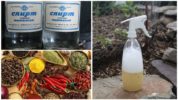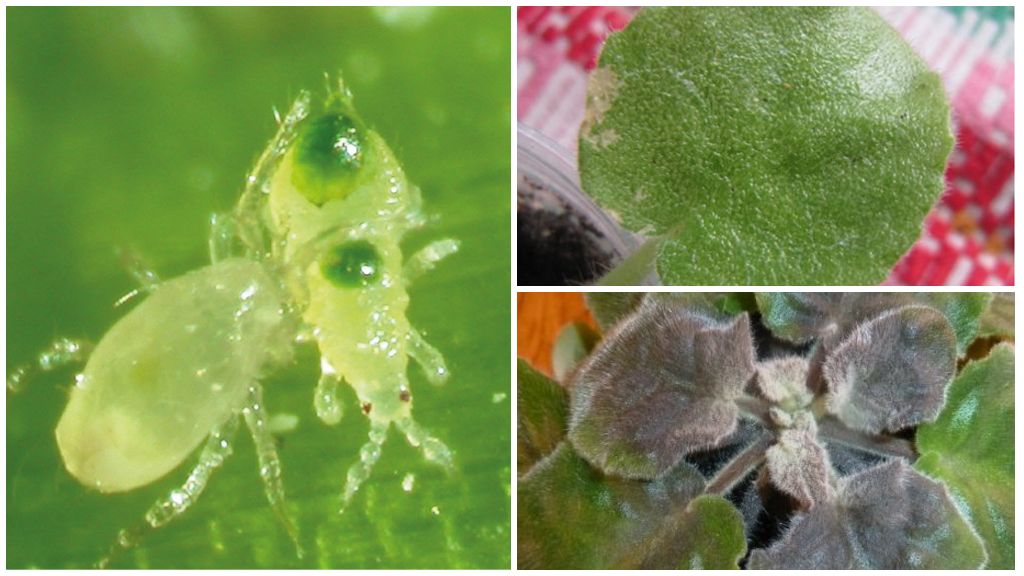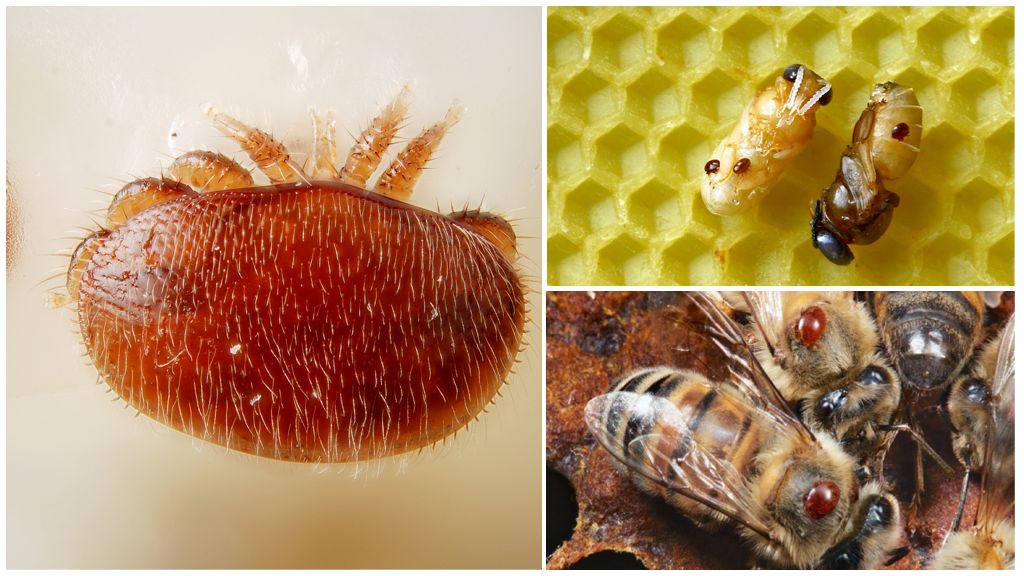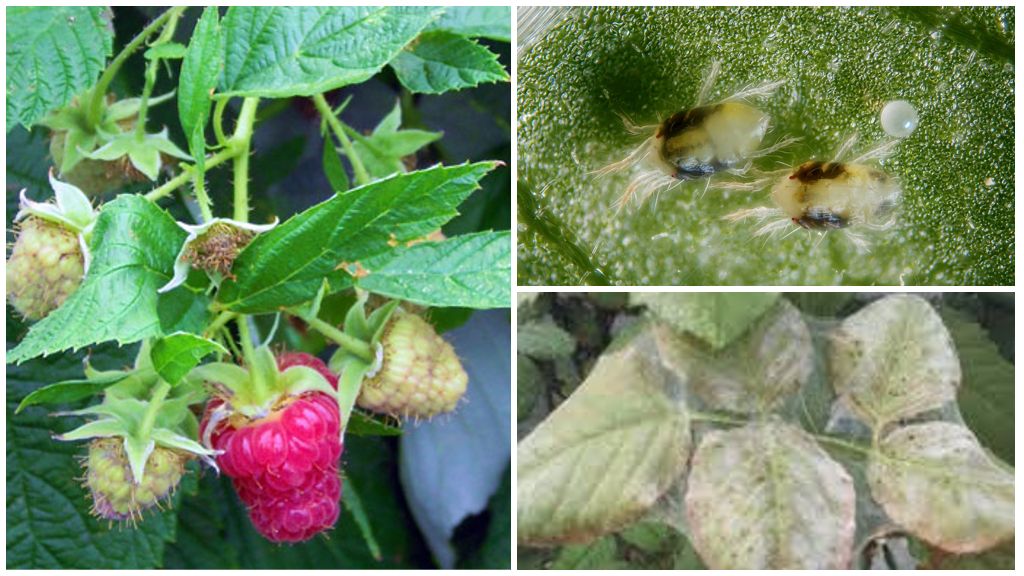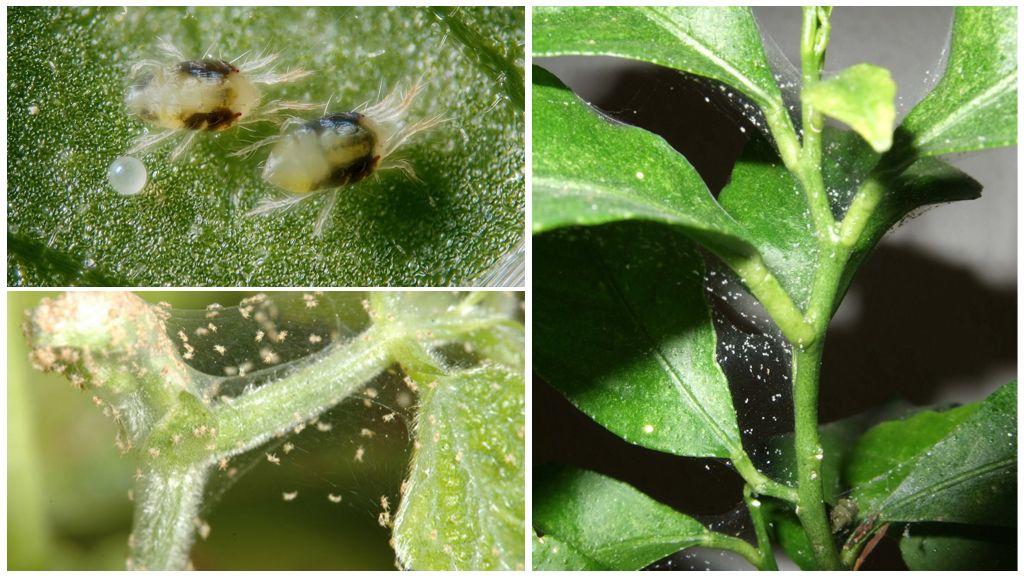- Spider mite on seedlings
- Folk remedies for tick control
- Tick-borne biological products
A spider mite on seedlings is able to destroy a plant even before it has time to take root, bloom. A small insect loves warm weather, moderate humidity. It is especially active in the month of May, early June, when the first seedlings are planted on the garden. Peppers may suffer eggplant, tomatoes, cucumbers. Greenhouse conditions are more suitable for spider mites, but freely parasitize on the open ground.
Signs of defeat
With the onset of warm days, plants are regularly attacked by numerous pests. To get a good harvest in the future, it is necessary to provide favorable conditions for the growth of seedlings after planting in the ground. The main condition is to prevent insect pests.
Spider mite - An animal of the small size of the spider family. The body is convex, translucent with a reddish-brownish tint. 4 pairs of transparent limbs. The female is 0.6 mm in size and the female is 0.2 mm smaller. Larvae are transparent, outwardly resembling an adult spider mite, but extremely small.
On a note!
The presence of a parasite in seedlings can be determined by the state of the leaves and stems. The spider mite and its larvae feed on the sap of plants, settle on the lower part, away from sunlight. In the process of life, a thin web is woven, which entangles leaves, stems, and with late infection of the crop, fruits.
Signs:
- the presence of small translucent ticks;
- spider web on leaves, stems;
- white dots on leaflets;
- twisting, falling, dying leaves;
- slowing the growth of seedlings;
- lack of flowers.
A photo of the spider mite on seedlings is presented below. The pest infects massively greenhouse plants, open ground crops.
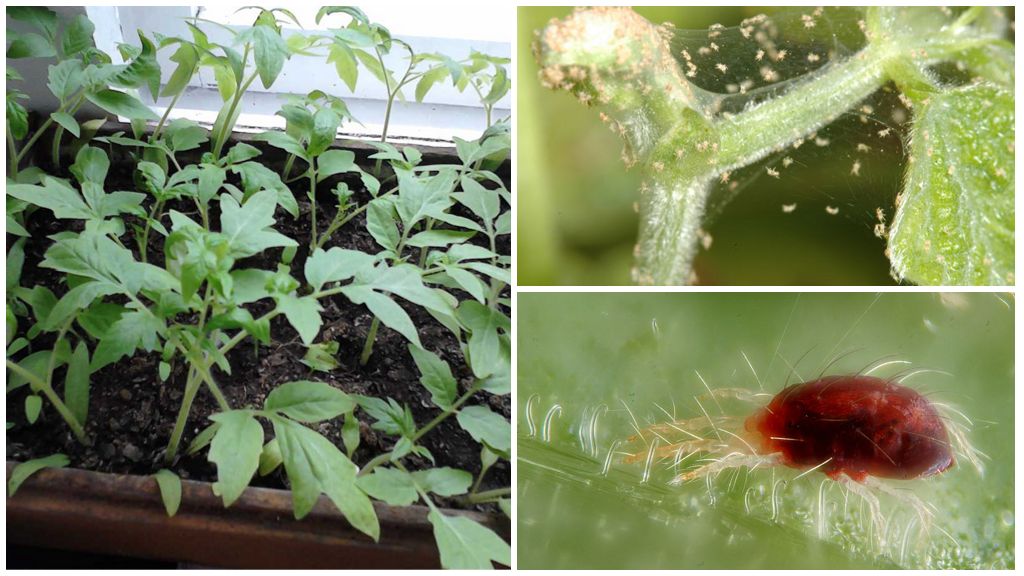
Folk remedies
You can treat peppers from aphids and ticks, as well as seedlings of tomatoes, eggplant, melon, cucumbers, watermelon, you can folk remedies. The main advantage of the method is safety, ease of use, accessibility. Preparations prepared at home do not affect the vegetation of the plant, save from spider mites, larvae.
The disadvantage is low efficiency for mass infection, the frequency of procedures is every 3-5 days, until the plant grows stronger. Fighting folk remedies is allowed in the greenhouse, on the open ground.
How to deal with spider mites on seedlings:
- Soap solution. Apply natural laundry soap. Rubbed on a coarse grater, pour warm water. Stir until completely dissolved, add cold water. Spray the plant, paying particular attention to the bottom of the leaf. Use a garden spray bottle or spray bottle. Soap creates a protective film on the leaves, when it gets on the body of the pest, it sticks together the paws, makes it difficult to move. Repeat the procedure every 3 days if there are signs of infection, 1 time per week for prevention.
- Alcohol, vodka. Methods of combating spider mites in seedlings suggest using a drink with a high alcohol content or medical alcohol itself. The product burns the chitin cover, repels with a pungent odor. Pour into a bottle with a spray, process leaves, stems. The procedure should be carried out twice a week.
- Cola, Pepsi.The modern folk method of controlling parasites on seedlings of pepper, tomatoes, eggplant, and other early crops. Suitable for small beds, because it is expensive for large gardens. A bottle is left open to eliminate bubbles or poured into a basin to speed up the process. Seedlings are sprayed, especially the leaves on the back. One of the most effective remedies for spider mites. Kills parasites at a time. Repeat for prophylaxis once every 7 days until there is a risk of infection.
- Spice. Red, black pepper, cinnamon, mustard are mixed in the same proportions, garlic tincture is added. Pour the product into the spray gun, treat the seedlings. The procedure must be repeated every 3 days. Garlic tincture is prepared very quickly. Pour the chopped vegetable with cold water, insist a day.
To fight the spider mite or to prevent infection, you need to regularly spray the seedlings with water. The pest does not tolerate moisture. Loosen the soil regularly, since the eggs are in the ground, eliminate weeds.
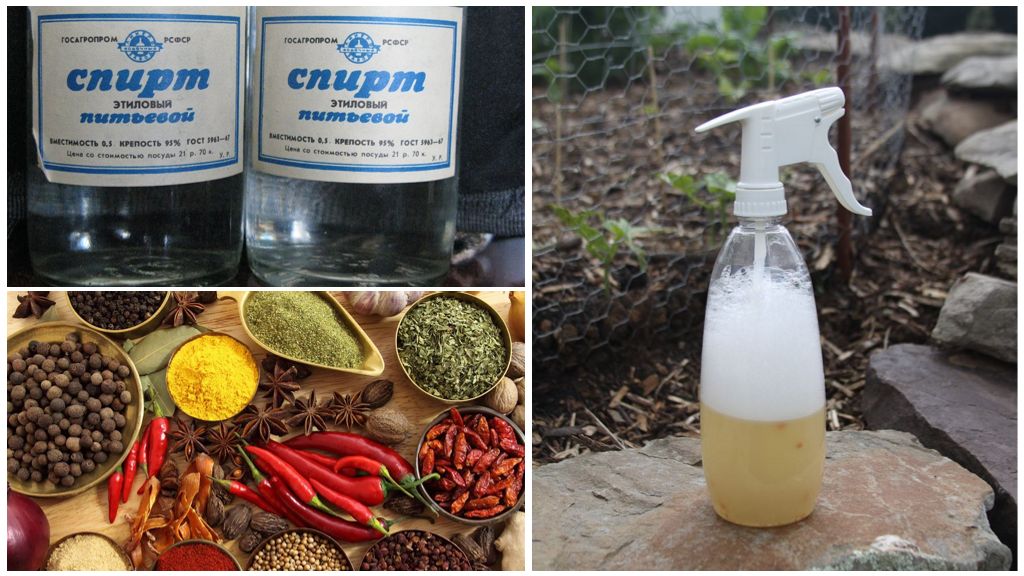
Feedback
Last year, a spider mite on pepper wound up. Seedlings stopped growing, all leaves were shrouded in cobwebs. I bought a bottle of cola at a grocery store. Sprayed carefully the plant. The next day, I did not find any new cobwebs; from that moment, peppers began to grow fully. The same tool helps a lot. from aphids. If you are racking your brains over how to get rid of a spider mite on seedlings of peppers or another early culture, buy a soda drink. It helps very quickly.
Marina, Moscow
Chemistry Against Pests
Professional control measures include the use of insecticides, acaricidescontact-intestinal drugs. Means are highly effective, kill spider mites in a few hours, prevent re-infection for another 30 days.
Important!
The use of insecticides at the beginning of the growing season - at the seedling stage, is allowed without special restrictions. In the future, the method should not be used during the flowering period of crops, 20 days before harvesting. During operation, it is imperative to use personal protective equipment - rubber gloves.
Among the disadvantages is high toxicity in the first days after treatment. The poison destroys not only the spider mite, other pests, but also beneficial insects. It is somewhat more humane to use poison in a closed greenhouse.
Chemicals destroy larvae of different ages, adults, but do not affect eggs that are in the soil. To destroy the larvae immediately after birth, it is recommended to spray the ground in the garden. In this case, the properties are stored for about 60 days.
Effective drugs
Each tool is accompanied by an instruction according to which you need to prepare a solution of the desired concentration. The procedure should begin immediately before processing the seedlings. The finished product is poured into a spray bottle or a spray bottle.
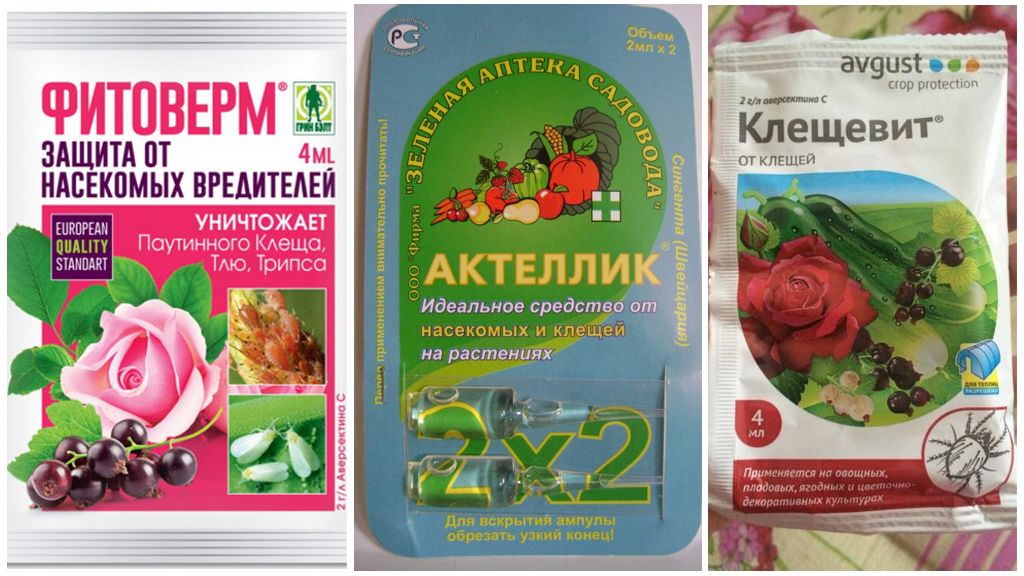
In a separate group of funds include biological products. They are safe for humans, do not harm the environment. The effect occurs 3-5 days after spraying the seedlings, the properties are preserved up to 14 days. You can process pepper from a tick or a tomato, eggplant at any stage of the growing season, except for flowering.
- Fitoverm. Insect acaricide of biological origin. 200 ml of cool water requires 200 ml of the product. The frequency of processing is 1 time in 5 days. The price of one ampoule is 23 rubles.
- Actellik. Universal insecticide with a wide spectrum of action. Penetrates into the body of pests via the intestinal route. An analogue is Kamikaze. To prepare a solution, 1 ml of the drug is dissolved in 1 liter of cold water. Reprocessing is carried out if necessary after 20 days. 100 ml of the drug costs 350 rubles.
- Tick-borne. Biological product. Produced in ampoules of 4 ml. Use for processing indoor plants, seedlings, any garden crops. 2 ml of phytopreparation is consumed per 1 liter of water. Re-spray the seedlings after 14 days. Cost - 17 rubles.
After the procedure, wash your hands with soap. The finished solution is allowed to be used for 3 days, then it loses its properties.
Feedback
Love it in action Anti-tick. In the evening, I processed, the next morning, not a single sign of the presence of parasites. Used repeatedly for different cultures: vegetables, strawberries, raspberries. Re-processing did not have to.
Irina, St. Petersburg
Kill the spider mite on seedlings can cold weather, high humidity. In the greenhouse the pest feels more comfortable; in the absence of human attention, a whole hothouse of plants may die. In order to timely respond to the problem, you need to periodically inspect the leaves of plants. You need to get rid of the pest after harvesting by digging the soil to prevent infection of future crops in the spring.

